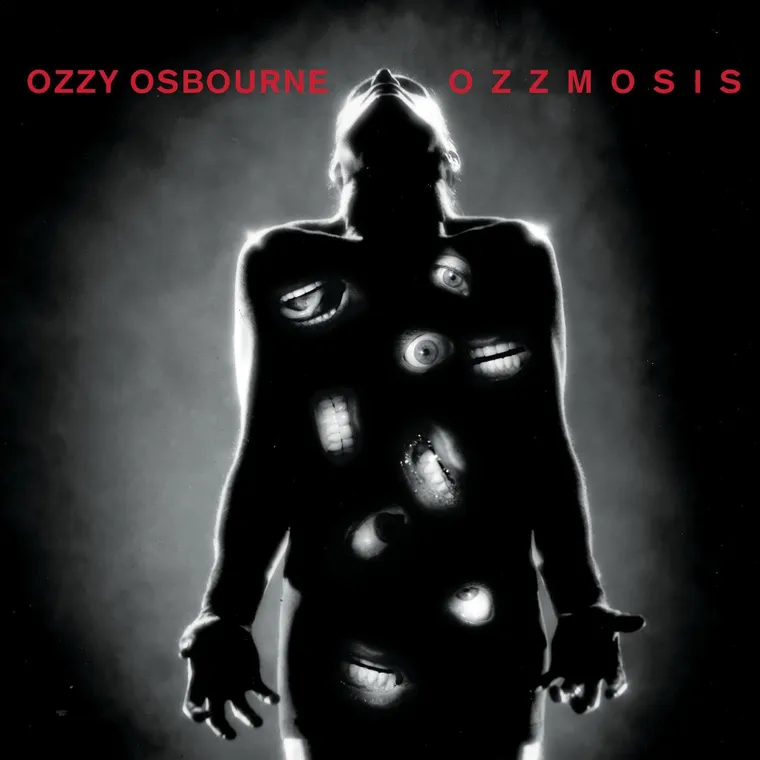Released on October 23, 1995, Ozzy Osbourne’s Ozzmosis didn’t reinvent the Prince of Darkness — it reaffirmed him. This wasn’t a comeback built on nostalgia or shock value. It was the sound of an artist reflecting on the wreckage behind him and realizing he still had the power to turn pain into melody.
By the mid-’90s, Ozzy had nothing left to prove. He’d survived Sabbath, solo superstardom, substance abuse, and the shifting tides of metal itself. Yet Ozzmosis arrived like a quiet reckoning — a darker, moodier reflection of the man behind the myth. Gone were the cartoonish theatrics of Bark at the Moon or No More Tears; in their place stood something more introspective, weary, and deeply human.
This wasn’t Ozzy the wildman. It was Ozzy the survivor — bloodied, bruised, but unbroken.
From Madness to Maturity: A Darker Kind of Resurrection
If No More Tears was the grand, glossy farewell of the early ’90s, Ozzmosis was the sobering aftermath. Recorded after a brief retirement that didn’t quite stick, the album plays like a man looking over his shoulder at his past — and not liking everything he sees.
Thematically, Ozzmosis is steeped in self-awareness. There’s still darkness, but it’s not the theatrical horror of Sabbath — it’s personal. Tracks like “Perry Mason” and “See You on the Other Side” channel mortality and guilt through grand, cinematic arrangements. Ozzy’s voice, aged yet commanding, doesn’t hide behind effects or excess. It sounds lived-in, scarred, and all the more powerful for it.
Zakk Wylde’s return on guitar grounds the album in muscle and melody. His tone is massive but restrained — less showboating, more storytelling. His leads bleed emotion, especially on slower cuts like “Old L.A. Tonight” and “Tomorrow,” where the guitars cry just as much as Ozzy does.
Riffs and Reflection: What Ozzmosis Sounds Like
The album opens with “Perry Mason,” a bombastic, orchestral surge of guitar and strings that immediately sets the mood. It’s both epic and unsettling — part courtroom drama, part inner trial. From there, Ozzmosis moves between thundering mid-tempo grooves and melancholic ballads, tied together by a sense of reflection.
“I Just Want You” is one of the album’s emotional anchors — a song that trades pyrotechnics for sincerity. Ozzy’s delivery is raw and confessional, backed by Wylde’s minimal but haunting guitar lines. It’s a love song, but one filtered through regret and exhaustion rather than fantasy.
“My Little Man,” co-written with Steve Vai, stands out for its eerie vulnerability. It’s Ozzy the father, not the icon — a rare, tender glimpse at the man beneath the image. Then there’s “Thunder Underground,” which slams back into the heavier side, brimming with anger and self-loathing but powered by purpose.
“See You on the Other Side” closes the emotional loop. Co-written with Lemmy Kilmister, it’s both haunting and hopeful — a farewell to friends, fans, and perhaps even the ghosts of Ozzy’s own past. It’s the kind of song only someone who’s been through it could write.
Vulnerability Behind the Volume
The emotional depth of Ozzmosis lies in its restraint. For all its heaviness, the album’s core is surprisingly vulnerable. Ozzy’s lyrics no longer hide behind demons and devils — they confront loss, aging, and self-doubt. He sounds less like the Prince of Darkness and more like a man exorcising himself.
There’s still plenty of swagger, of course — this is Ozzy, after all — but there’s also a humanity that gives the record its staying power. The blend of world-weary ballads and molten riffs makes Ozzmosis one of his most dynamic albums, bridging the gap between metal bravado and emotional honesty.
It’s an album that breathes — brooding in places, triumphant in others — and it captures a side of Ozzy that’s often overshadowed by his larger-than-life persona: the storyteller.
The Production: Clean, Cold, and Cinematic
Produced by Michael Beinhorn, Ozzmosis walks the line between sleek and sinister. The mix is huge — every snare hit punches through, every guitar riff feels cathedral-sized. Yet beneath the polish, there’s grit. The strings and synths add drama without drowning the guitars, and Ozzy’s vocals sit perfectly in the center of it all — warm, eerie, unmistakable.
Unlike the raw bombast of his early solo work, this production feels cinematic. You can hear the emotion in the space between the notes — the quiet pauses, the echoes, the weight of silence. It’s metal with maturity.
The Legacy: The Sound of Survival
Ozzmosis didn’t redefine Ozzy Osbourne — it reaffirmed him. It showed that, even after decades of chaos, he could evolve without abandoning his core identity. It’s not as immediately iconic as Blizzard of Ozz or as commercially flashy as No More Tears, but it’s arguably more personal and emotionally resonant than either.
This was the sound of a man who’d seen too much, lost too many, and still managed to sing through the pain. It’s an album that grows with time, its melancholic weight hitting harder the older you get.
For fans, it’s the moment Ozzy stopped playing the role of rock’s eternal madman and started embracing the man behind the myth. For metal itself, it proved that aging didn’t have to mean fading — it could mean deepening.
Final Verdict: 8.5 / 10
Ozzmosis is the calm after the storm — a reflective, powerful statement from a legend still standing after the fire burned out. It’s dark, heartfelt, and deeply human beneath its heavy exterior.
It may not scream for attention like Ozzy’s earlier work, but it doesn’t need to. It listens instead — to the echoes of a lifetime lived at full volume.
With Ozzmosis, Ozzy Osbourne didn’t just survive his past. He made peace with it — and turned it into one of the most quietly powerful records of his career.

